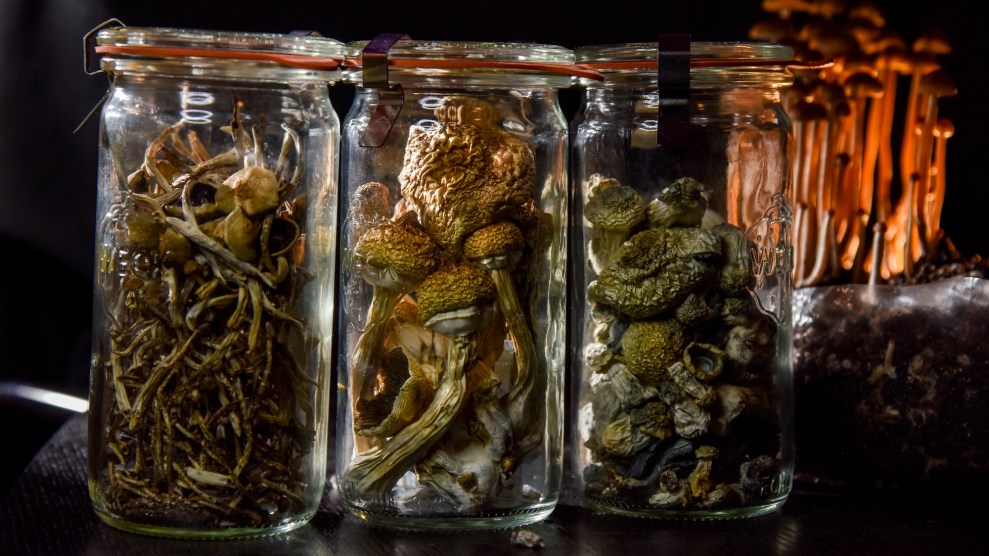
Jahi Chikwendiu/Washington Post/Getty
What do NFL quarterback Aaron Rodgers, former Texas Gov. Rick Perry, and an Oakland, California, hair braiding salon owner have in common?
The answer: Support for psychedelic drugs.
On this week’s episode of Reveal, an update of an episode that first ran in October, host Michael Schiller and reporter and producer Jonathan A. Davis investigate the growing support for therapy with drugs like like MDMA, psilocybin, and ketamine.
First, we accompany Davis to Denver for the largest-ever conference on psychedelic drugs. More than 50 years have passed since former President Richard Nixon signed the Controlled Substances Act, putting a stop to promising scientific research on psychedelics as a mental health treatment. Now, momentum is building to research, legalize, and capitalize on these drugs. At the Psychedelic Science 2023 conference, packed with about 500 speakers and 12,000 registrants, Davis encounters hippies, Indigenous activists, and businesspeople plotting for a psychedelic boom. And then there’s Perry—the “self-described dark, knuckle-dragging, right-wing, Republican”—who’s become a believer in the psychedelics as a PTSD treatment for veterans, and wants government to get out of the way.
To understand how these drugs can help people struggling with trauma, Schiller travels to a town outside Austin to accompany a group of veterans who have joined a church founded by an Iraq War veteran who uses psychedelics as religious sacraments. There, on a microdose-fueled retreat, they share stories of their deep distress after coming home from war, and the relief they’ve found in psychedelics.
It’s not just veterans who stand to benefit. In Oakland, California, Davis meets Deedee, the owner of a hair braiding studio, who struggles with depression, anxiety, and other psychological impacts of experiencing abuse as a child. Deedee shares an audio diary of her experience working with a mental health counselor who uses ketamine-assisted therapy. Though ketamine can be dangerous if abused, researchers have found that it can help alleviate depression when used in conjunction with talk therapy.
















